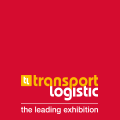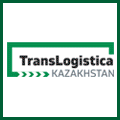The European Commission proposal made yesterday to add trailers and semi-trailers to the Eurovignette Directive can only be seen as an industry incentive if Member States are obliged to apply it from the same date as the motor vehicle CO₂ rate variation.
Member States with road user charges must transpose the new Eurovignette rules, which were published in 2022, by 25 March 2024. The current scheme allows Member States to base their infrastructure charging rates according to the Euro class of motor vehicles. After March 2024, a rate variation based on CO₂ performance will become mandatory.
The European Commission hopes to incentivise the market uptake of more energy-efficient trailers and semi-trailers by adding them to the CO₂ rate variation, but Member States will only have to apply it starting 1 July 2030.
IRU Director EU Advocacy Raluca Marian said, “The road transport industry had higher expectations for the proposal.
“IRU can welcome such an expansion of the Eurovignette Directive only if Member States are obliged to apply it from the same date as the scheme for motor vehicles.
“Vehicle combinations could end up in a more favourable charging category, by virtue of the energy efficiency of the trailer, which will potentially throw a lifeline to vehicles that could be downgraded by the introduction of the CO₂ rate variation. The obligation to apply it cannot wait until 1 July 2030.”
“We call on legislators to ensure that this proposal becomes a real positive incentive for transport operators. It must be a tool to allow vehicle combinations to fall in a more favourable charging class from the same date as the application of the CO₂ rate variation for motor vehicles,” she added.
The current Eurovignette framework already risks to seriously increase user and external cost charges for heavy goods vehicles, as seen in the German government’s draft implementation plans, where charges will almost double, and the currently proposed scheme is not taken into account. This is unacceptable. The 2022 Eurovignette modification clearly states that the introduction of CO₂-related charges should not be levied to profiteer.
“Furthermore, the CO₂ rate variation scheme is already very complex to implement, adding trailers and semi-trailers could make it even more complicated,” highlighted Raluca Marian.
The proposed changes could also be administratively burdensome for drivers and operators. Legislators will have to find solutions to minimise the administrative burden attached to the repetitive registration of vehicle combinations with toll providers.
Finally, the combination of the 2022 changes to the Eurovignette Directive combined with the new proposal could mean that many Euro VI vehicles, currently considered the cleanest technology in Eurovignette, will end up in much less favourable categories in 2024. Legislators should not allow this to happen.
The Commission’s proposal is now with the Council and the European Parliament. If they do not adopt the text at first or second reading, a conciliation will be convened to develop a new one.
Source, IRU



.jpg)






